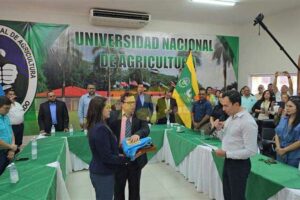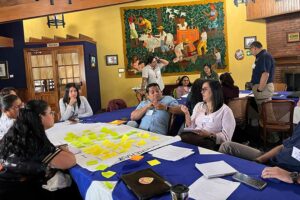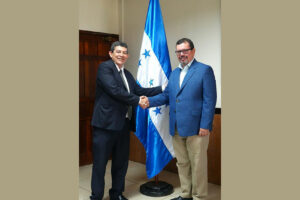CATIE highlights the urgency of putting Knowledge into Action at COP30
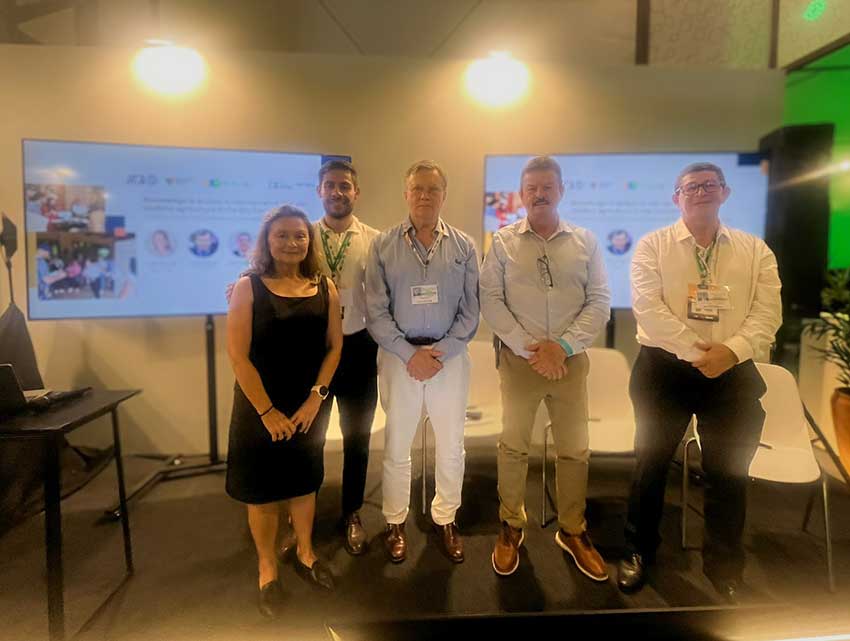
- Through the ESCALAR project, financed by the Swedish Cooperation, CATIE reaffirmed one of the central points of the COP30 Action Agenda: translating knowledge into concrete actions. The dialogue took place at the IICA Pavilion, within the AgriZone, in Belém, Brazil.
Within the framework of the United Nations Climate Change Conference (COP30), the panel “Knowledge into Action: A New Narrative to Scale Resilient Agriculture in the Central American Dry Corridor” was held. This space was promoted by CATIE (Tropical Agricultural Research and Higher Education Center), in collaboration with the Inter-American Institute for Cooperation on Agriculture (IICA), with the aim of showcasing how applied knowledge can accelerate climate adaptation in the most vulnerable rural territories of the region.
COP30 is being held this year under the theme “The Implementation Summit,” seeking to drive and accelerate global commitments on adaptation, mitigation, and climate financing. In this context, the panel of the ESCALAR Project: Scaling up Climate Change Adaptation Solutions for Resilience and Migration Reduction in the Central American Dry Corridor, reaffirmed the urgency of moving from scientific evidence to the implementation of concrete actions that integrate alliances among governments, academia, the private sector, women, youth, and rural communities to multiply the reach of solutions that are already working.
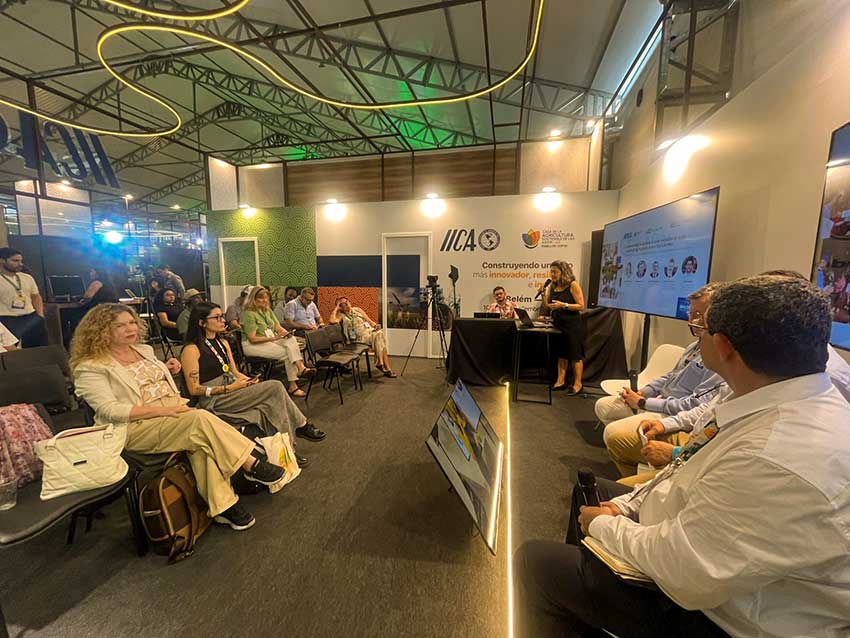
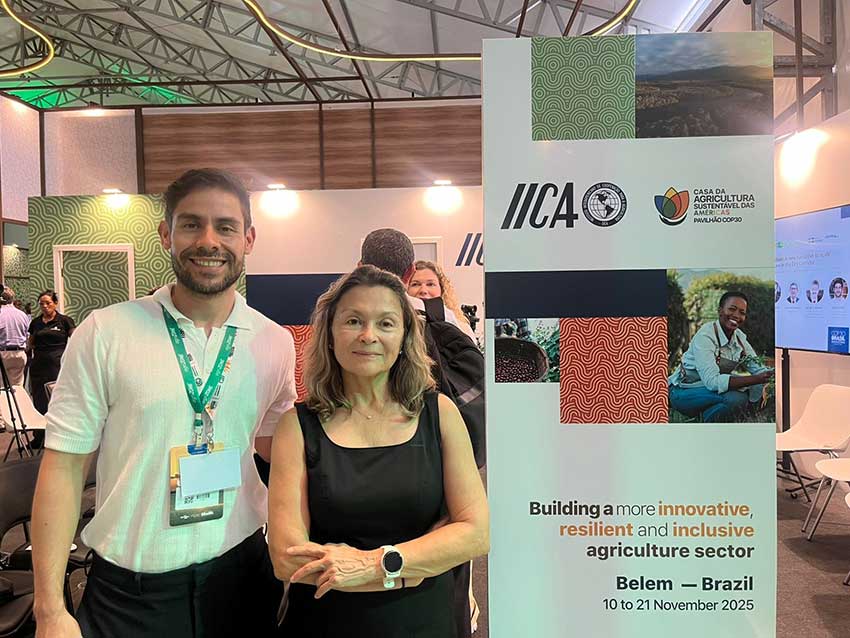
A region of great challenges—but also opportunities
The Central American Dry Corridor (CADC) is one of the regions most affected by the climate crisis in the world. Prolonged droughts, crop losses, water scarcity, and forced migration are just some of the daily challenges faced by thousands of farming families. However, it is also a territory of innovation and resilience, where science, local knowledge, and multi-actor alliances are driving real transformations in agri-food systems.
“Science must reach the territories. The time has come to break the vicious circle and create a virtuous one—one in which ten or twelve million inhabitants of the Dry Corridor can feel proud of a sustainable and inclusive productive intensification that restores quality of life and the Central American rural landscape,” stated Dr. Manuel Otero, Director General of IICA, during the panel.
Putting Knowledge into Action
The ESCALAR project, led by CATIE with the support of the Swedish Cooperation and strategic partners such as the Trinational Commission of the Trifinio Plan (CTPT), seeks precisely to drive this change in approach: to put Knowledge into Action..
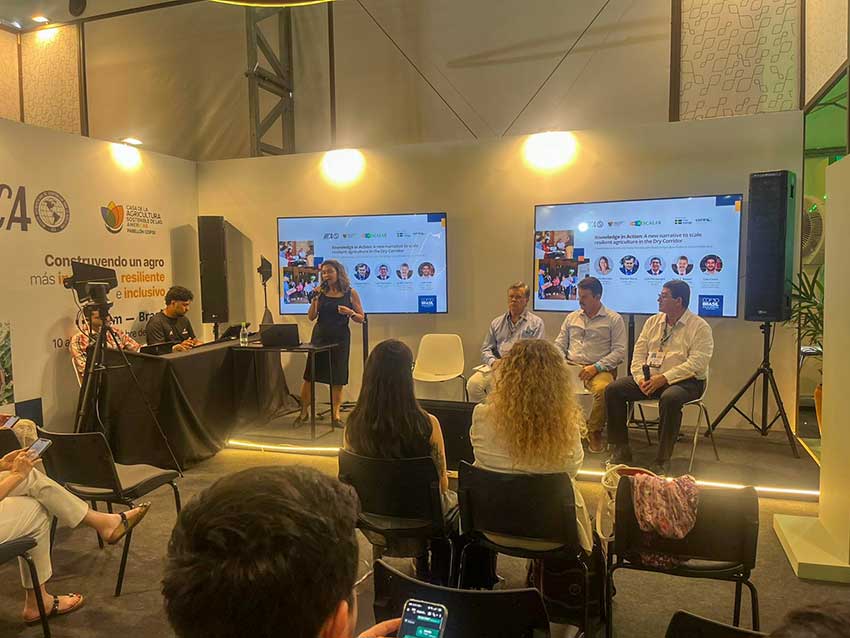
During the panel, participants shared various perspectives and experiences on agricultural adaptation innovations that have demonstrated productive, economic, and social impact in rural communities of Central America. Discussions focused on how to expand their reach, strengthen their sustainability, and integrate them into public policy processes, local governance, and climate financing.
“The producer must be involved from the beginning in any technological innovation, because they are the ones who adopt and make it possible. Research must start from their reality and their needs; training is the bridge that transforms scientific knowledge into practical and accessible solutions,” emphasized Dr. Luis Pocasangre, Director General of CATIE.
The discussion also addressed the transformative role of rural women and youth in sustainable development, who are already leading innovation processes from their territories, incorporating climate-smart practices, promoting green businesses, and strengthening the food security of their families and communities.
“The world still has time to change. But we will only achieve it if we work together. We must ensure that technical and scientific knowledge joins local voices to create real and lasting climate action,” said Luis Corzo, Regional Director for Latin America and the Caribbean of World Vision.
For her part, the panel’s moderator, Leida Mercado, researcher and leader of the ESCALAR project at CATIE, concluded:
“Climate change will continue to occur, but what we can transform is how we strengthen resilience, especially among the most vulnerable populations. This space invites us to value local knowledge and to reflect on how to improve our work to continue contributing to the development of the Central American Dry Corridor and the communities that inhabit it.”
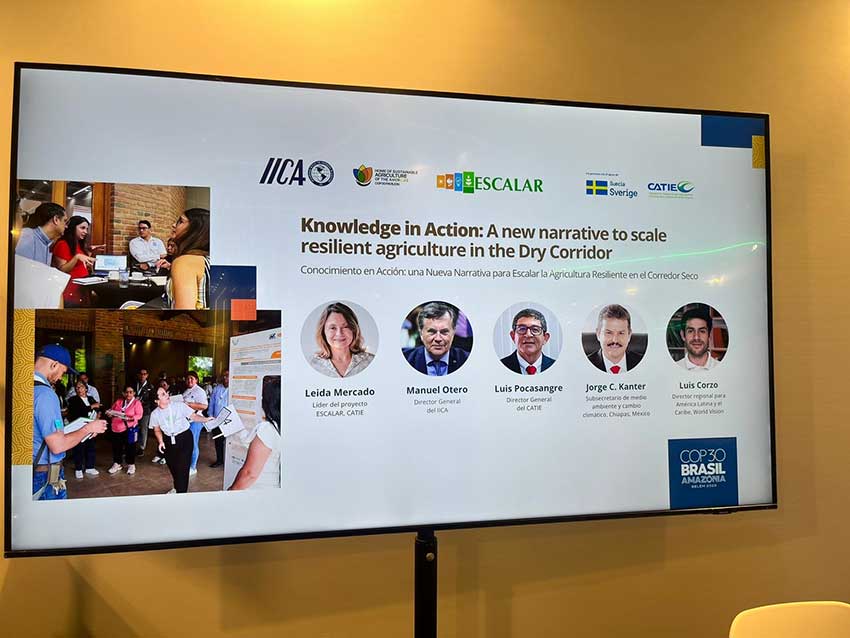
An urgent commitment
Through this participation, the ESCALAR project reaffirms its commitment to the COP30 Action Agenda, which underscores the need to accelerate innovations, strengthen local capacities, and mobilize financial resources to make possible a more sustainable, inclusive, and resilient development in the face of climate change for all people.
More information/written by:
Arely Valdivia Araica
Communications Specialist
ESCALAR Project
CATIE
arely.valdivia@catie.ac.cr
https://escalar.catie.ac.cr

